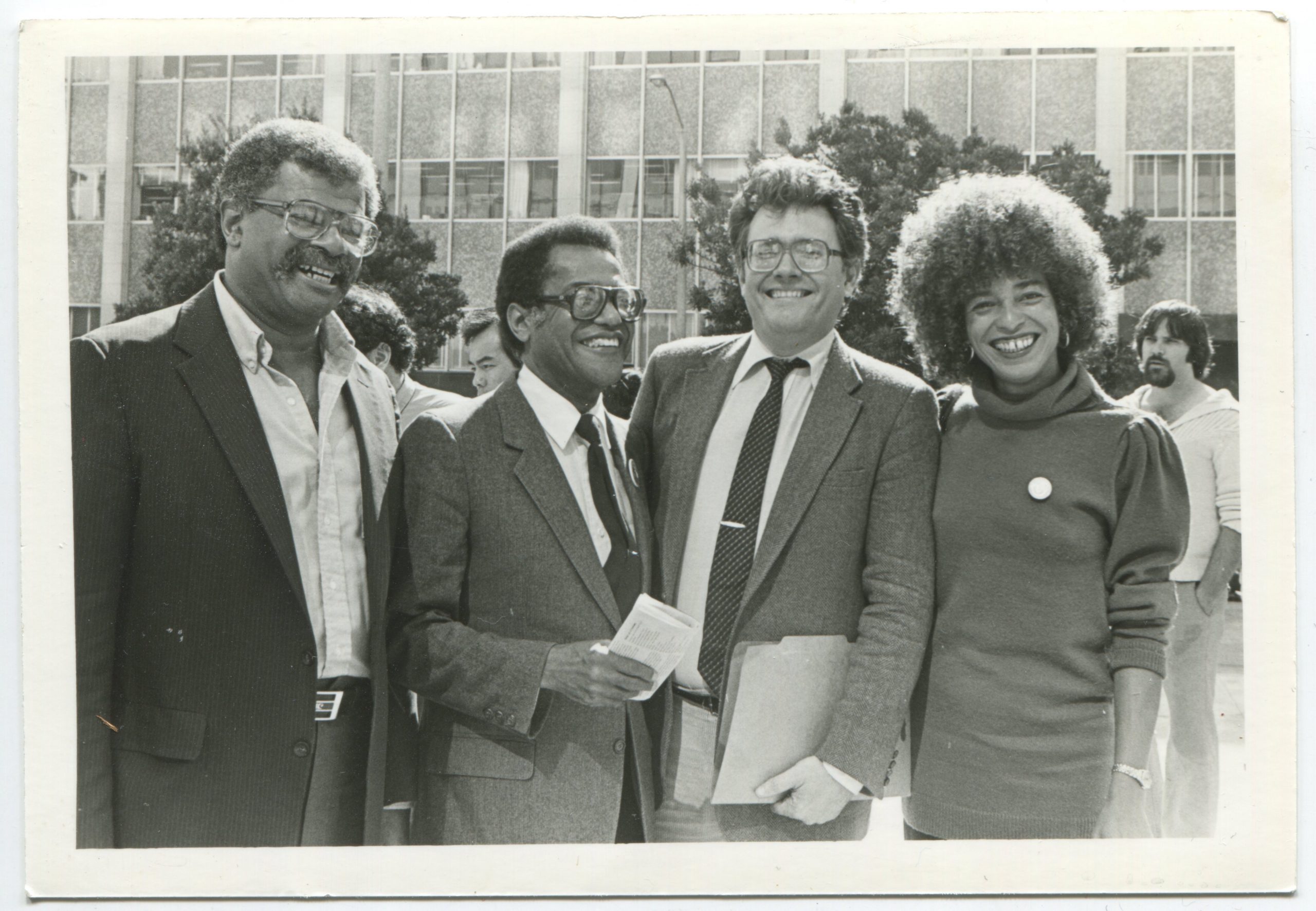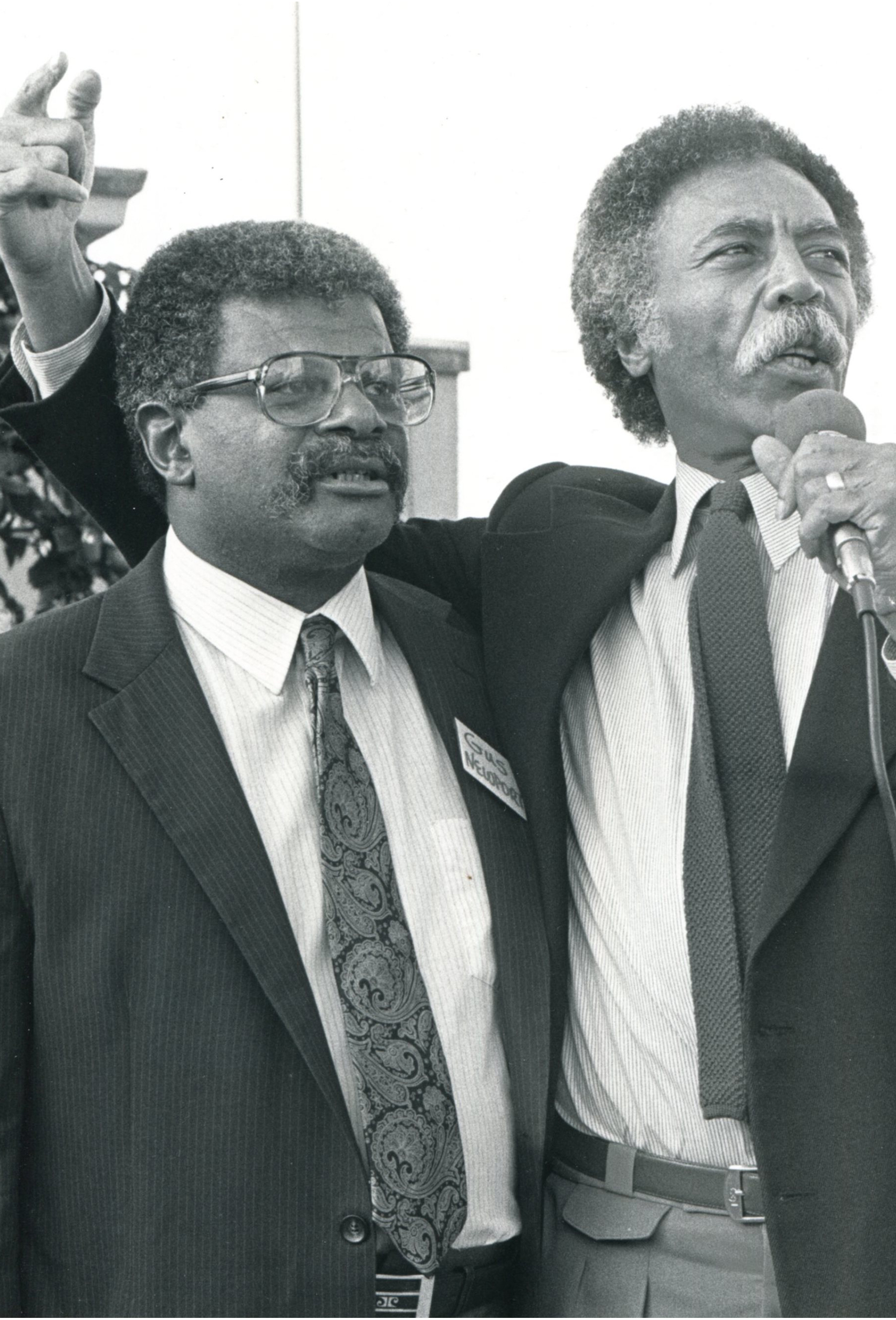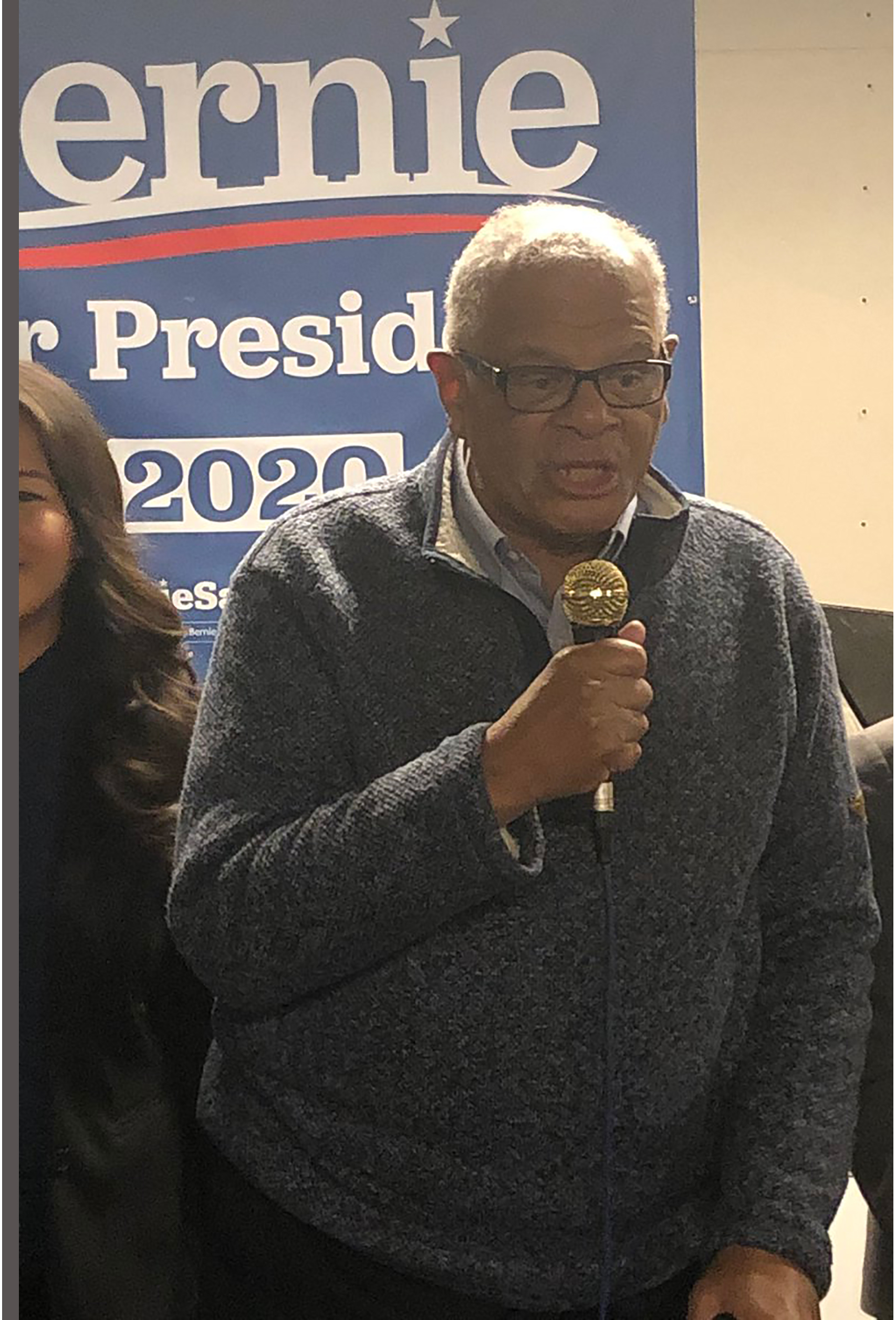Biography
EUGENE “Gus” NEWPORT
 Eugene Norman “Gus” Newport (1935-2023)
Eugene Norman “Gus” Newport (1935-2023)
Gus Newport dedicated his life to protecting the rights of all people to live in peace and realize their full potential.
Gus is best remembered for serving two terms as mayor of Berkeley, where he championed progressive causes — from police reform to rent control — that drew national attention. But Gus fought for social justice long before he was elected to office — and long after his tenure. He was a crusader, both at home and abroad.
Gus traced his lifelong commitment to social justice to his mother and grandmother. His great-grandmother had been a slave in Virginia, and his grandmother grew up in the Jim Crow South picking cotton as a child. Gus often told the story of how she got to school late from the fields one day and was slapped by a teacher. Defiant, she decided to leave and never return, seeking enrichment elsewhere. Later in life, she took Gus, as a five-year-old, to hear Marian Anderson and Paul Robeson perform; the events would leave a lasting impression.
As a young man in the 1960s, after serving in the Army, Gus chaired the largest civil rights organization in Rochester, New York, his hometown. While organizing to combat police brutality in that city, he came to the attention of Malcolm X, with whom he worked to establish the Organization of Afro-American Unity. Gus was traveling with Malcolm four days before he was assassinated.
Decades later, Gus served on the five-person advisory body whose mission was to guide the rebuilding of New Orleans after Hurricane Katrina.
As a global advocate for human rights, Gus served on several United Nations committees, including the Special Committee Against Apartheid and the Committee on the Exercise of the Inalienable Rights of the Palestinian People, and was vice president from the U.S. to the World Peace Council.
In his final years, Gus provided leadership on boards and committees for organizations whose missions he held dear, including the Center for Community Land Trust Innovation, Children’s Defense Fund, Middle East Children’s Alliance, National Council of Elders, Project South and the Urban Strategies Council. One of his last public roles was on Oakland’s Reimagining Public Safety Task Force, formed after the murders of Breonna Taylor and George Floyd at the hands of police.
As recently as May, just weeks before his death in June, Gus traveled to Alex Haley’s farm in Tennessee to meet with young organizers at a National Council of Elders gathering. He did this despite having had a leg amputated — the result of vascular disease — in his mid-80s.
“Gus was an inspiration, standing alongside civil rights giants like Malcolm X in the fight for the human rights of all African Americans,” said U.S. Rep. Barbara Lee, a friend. “He has spent his life fighting for justice and liberation, and the world is a better place because of him. He is a true friend and an inspiration to us all. May he rest in peace and power.”
As mayor of Berkeley, from 1979 to 1986, Gus led innovative policy reforms and programs to address the rights of underserved residents, from working women to LGBTQ+ families and low-income renters. He spearheaded innovative programs on police reform, affordable housing, environmental protections and community development. He advocated for small businesses against rent increases, and the city succeeded in protecting rent control in a Supreme Court case argued pro bono by famed Constitutional attorney Lawrence Tribe.
Gus’ many accomplishments are a testament to his tirelessness. After his time as mayor, he directed the Dudley Street Neighborhood Initiative, the only nonprofit organization in the country to be given the power of eminent domain to buy land for community revitalization. He also worked as an independent consultant in the area of community building, assisting several foundations and neighborhood organizations across the country, and he served on the faculties of MIT, Yale, UC Santa Cruz, UMass Boston and Portland State.
In recent years a cohort of Gus’ mentees came together to ensure that his history and social justice legacy would be remembered and sustained. They worked with Gus to create the Gus Newport Project, recording dozens of oral history interviews and conversations with people from many of the movements in which he had been so instrumental. The project continues: a documentary, archive and other programs are underway.
All those who knew Gus cherished his warmth, humor, steadfast convictions and honesty. His charisma and joyful presence transformed any room he entered, giving strength to his loved ones and allies and disarming those who might disagree with him.
Gus is survived by his wife, Kathryn Kasch; two children, Kyle and Maria; two grandchildren, Maasai and Dominic; and two brothers, Robert and John.




